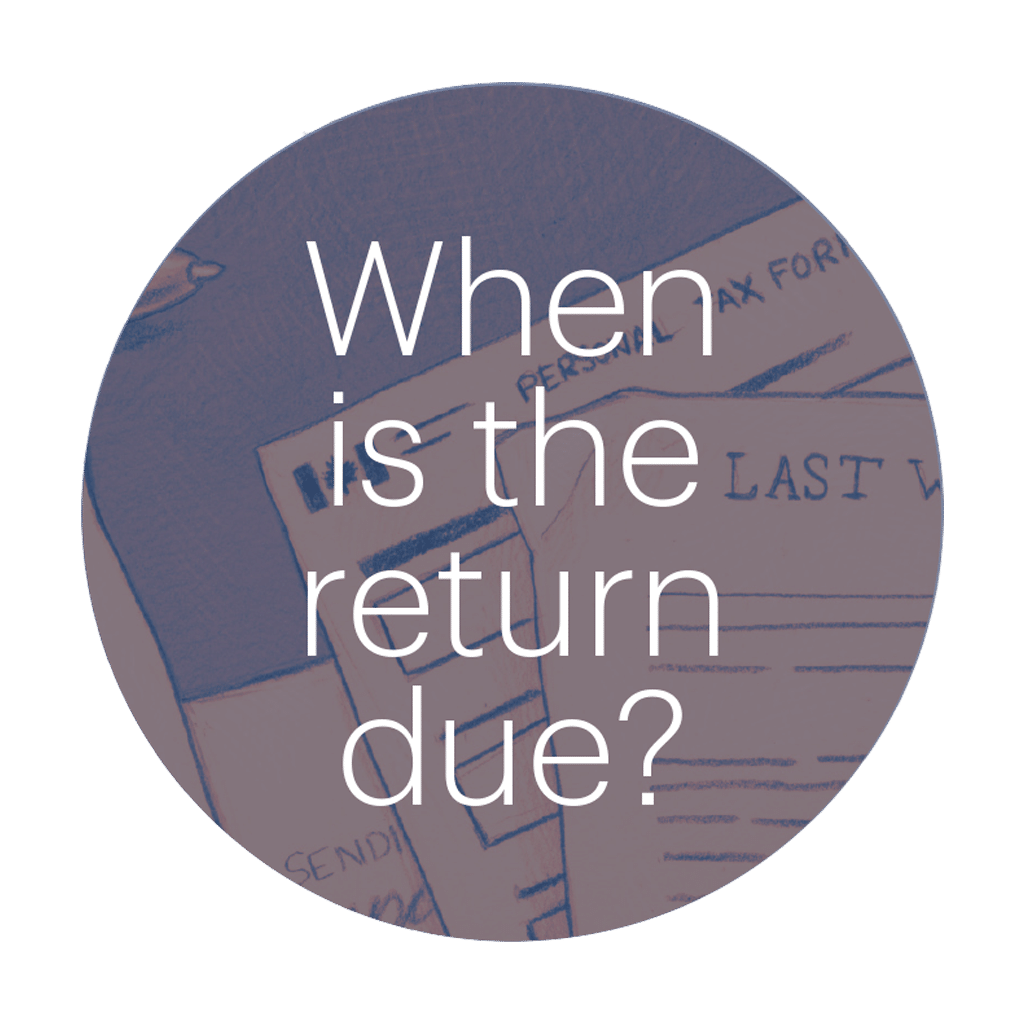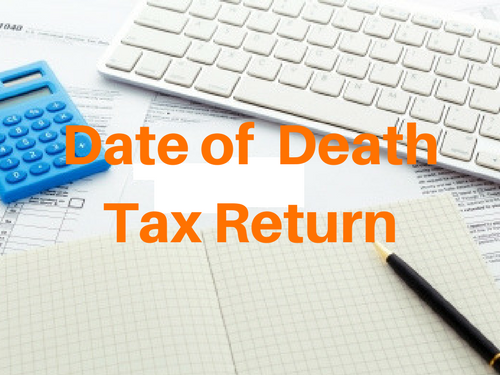
Wherever You Are In The World. Your Taxes Done With Ease. When is the final tax return due? Do I need to lodge a date of death tax return? What is the due date for death?
To understand the tax returns and when they are due, the executor must grasp the guidelines for each return. The following is a review of the tax returns for an estate. The final return will cover the income received by the decedent up until the date of death. This return is due on or before April 15th of the following year. The filing of fiduciaryincome tax return occurs only if the estate assets generate more than $600.
If filing a fiduciary income tax return is necessary, the executor will have two options to establish the deadline: a. The executor may elect to file in the calendar year. In this case the return will be due on or before April 15th of the following year. The filing of the estate income tax return occurs only if the assets of the estate generate more than $100. The due date determination is the same as the federal fiduciary income tax return. The estate tax return is due months after the date of death.

Estate Tax – Form M-706. Keep in mind that there are automatic extensions to some of these due dates. Massachusetts doesn’t have a gift tax. So, the executor must estimate the tax and write a check on the due date if making the deadline is not possible. Also, the value thresholds established for the estate tax return and the gift tax return may change from year to year.
Therefore, the executor will need to check the value threshold for that year to determine if filing an estate tax return or a gift tax return is necessary. Finally, estate taxes are complex. The date of death provides some guidance and establishes deadlines for the necessary tax returns. However, some returns are still complex.

For that reason, it is best to hire a tax professional competent in estate tax law, or, to retain an attorney that provides estate tax services. A quick note:Any state that has an income tax may also have estate taxes. Consult a tax professional to see if your state requires an estate tax return and to learn the requirements that would trigger an estate ta. Certain estates are required to report to the IRS and the recipient the estate tax value of each asset included in the gross estate within days of the due date (including extensions) of Form 7or the date of filing Form 7if the return is filed late.
It covers the period from the previous July to the date of death. Complete a normal SA1individual tax return for the period from the start of the tax year up to the date of death. Tax returns in relation to the deceased person and estate are due for lodgement no later than the October of that financial year for the financial year ending on June as per the usual individual tax return lodgement deadlines. On the final return, report all of the deceased's income from January of the year of death , up to and including the date of death.
If the death occurred between November and December inclusive, the due date for the final return is months after the date of death. To find out what income to report on the Treturn, see Chart 2. Us Deal with the IRS. See How Easy It Really Is! Get Peace of Mind Support Guarantee!
It depends on the value of the estate. Supplemental forms, such as 706-A, 706-GS (D-1), 706-NA, or 706-QDT, may also need to be filed. The final income tax return is due at the same time the person’s return would have been due if they had not died.

This means returns are typically due on April following the year of death. Sometimes people confuse the estate tax with an income tax , but it is not a tax on income. It is a transfer tax imposed on. As part of the valuation of assets at death by an estate tax appraiser, a date of death valuation determines the Fair Market Value of real estate as of the date that the owner died.
This property valuation is used to determine if a federal estate tax return is due to the IRS, and the amount of estate tax , if one is owed. The date of the death estate valuation refers to the fair market value of each estate asset at the time of a decedent’s death. This would be the statement values as of that date for bank, investment, and retirement accounts. If the assets dropped in value after you inherited them, you may. Sometimes, you can use the assessment as the value at the date of death.
The assessed value is the value your local real estate tax assessor places on the property for real estate tax purposes. Compare the assessed value with similar properties sold around the date of death or for sale at that time in your locale to see whether the assessed.

No comments:
Post a Comment
Note: Only a member of this blog may post a comment.